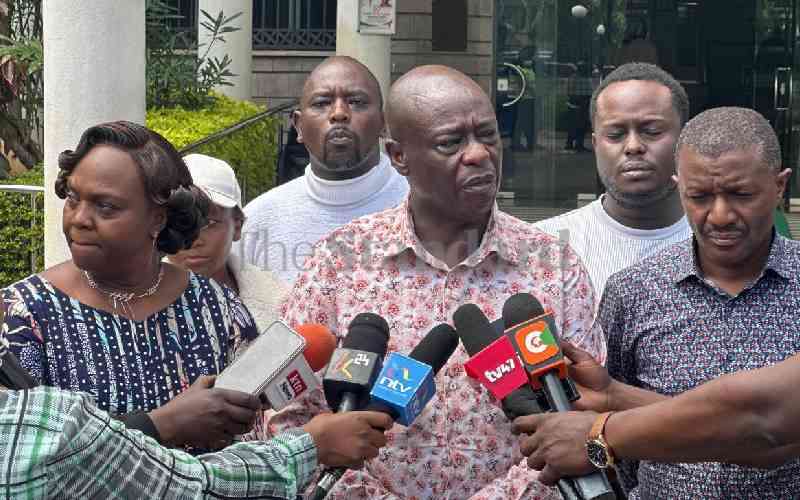×
The Standard e-Paper
Fearless, Trusted News

Impeached Deputy President Rigathi Gachagua's allegations of assassination attempts and threats to his life have ignited unsettling comparisons to the tumultuous histories of his predecessors most recent being his boss President William Ruto.
Gachagua, often referred to as Riggy G, believes that his safety is compromised due to actions within the government-a sentiment that resonates with fears expressed by Ruto only 24 months ago when he made a claim about his children being targeted by the Uhuru administration.